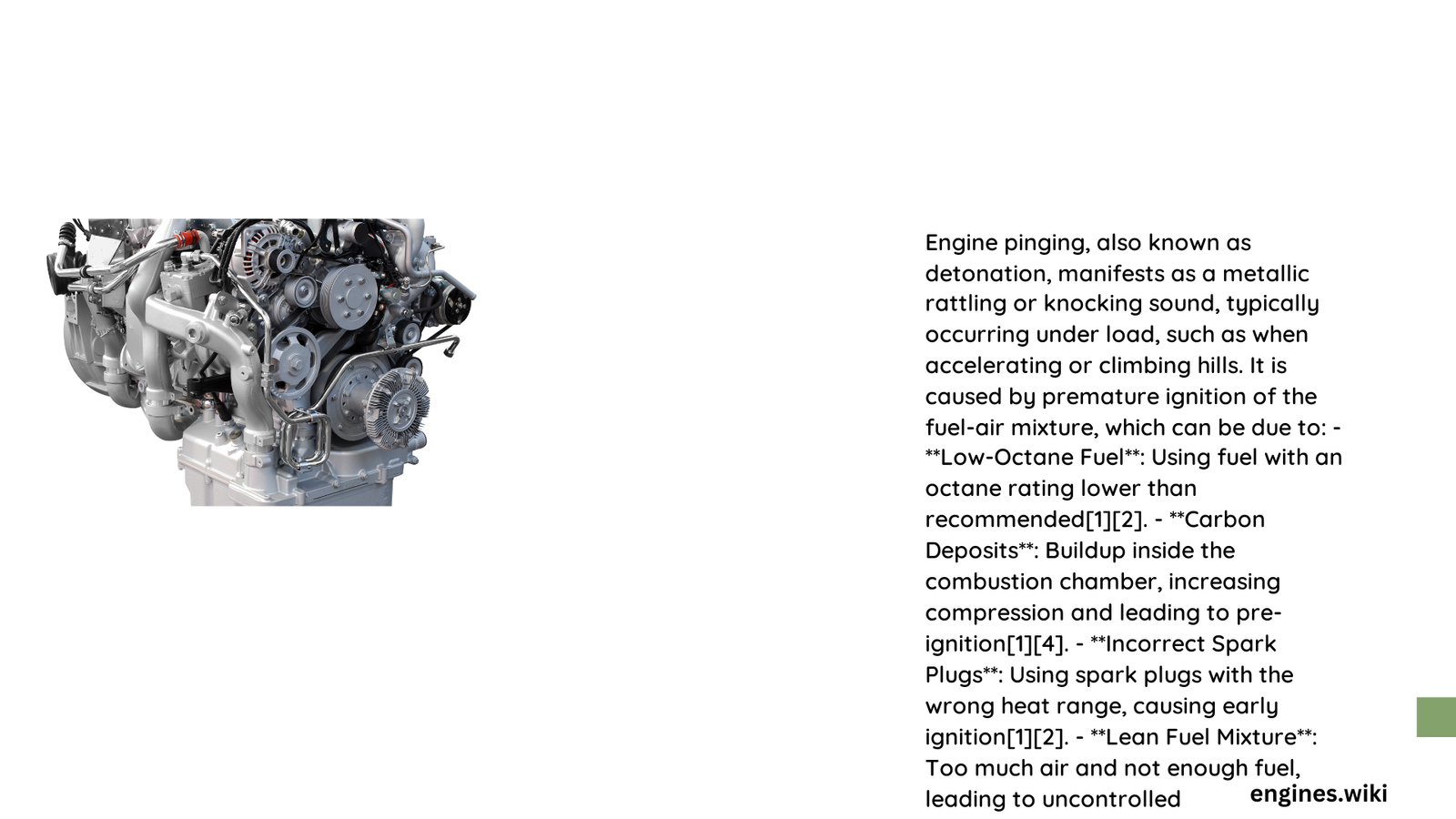Engine Pinging Symptoms: A Critical Vehicle Health Warning
Engine pinging represents a serious mechanical warning signal that can indicate underlying problems threatening your vehicle’s performance and longevity. This metallic, rattling sound—often compared to marbles shaking in a can—emerges during acceleration, load-bearing conditions, or uphill driving, signaling potential combustion process disruptions that demand immediate attention.
What Causes Engine Pinging?
Combustion Process Disruptions
- Premature Fuel Ignition: Occurs when fuel-air mixture ignites before the spark plug fires
- Carbon Buildup: Accumulation in combustion chambers creating hot spots
- Incorrect Fuel Octane: Using lower-rated fuel than engine specifications require
Diagnostic Indicators
| Symptom | Potential Cause | Severity |
|---|---|---|
| Metallic Knocking Sound | Low Octane Fuel | Moderate |
| Consistent Pinging Under Load | Ignition Timing Issues | High |
| Intermittent Knocking | Carbon Deposits | Low-Moderate |
How to Identify Engine Pinging?
Sound Characteristics
- Metallic rattling noise
- Sounds like “marbles in a can”
- Occurs predominantly during acceleration
- Increases with engine load
Diagnostic Techniques
- Auditory Inspection
- Listen carefully during acceleration
-
Note frequency and intensity of knocking sound
-
Technical Diagnostics
- Use OBD-II scanner
- Check for specific diagnostic trouble codes
- Perform compression tests
What Are Potential Solutions?
Immediate Interventions
- Switch to recommended octane-rated fuel
- Clean combustion chambers
- Replace spark plugs
- Adjust ignition timing
Professional Recommendations
- Regular maintenance checks
- Use high-quality fuel
- Follow manufacturer’s service schedule
- Address symptoms immediately to prevent engine damage
Cost Implications
Repair Estimated Costs:
– Spark Plug Replacement: $100 – $300
– Carbon Deposit Removal: $200 – $500
– Cooling System Repairs: $100 – $1,000
Prevention Strategies
- Use manufacturer-recommended fuel
- Perform regular engine tune-ups
- Monitor engine performance consistently
- Address unusual sounds promptly
When to Seek Professional Help?
Immediate Professional Consultation Required If:
– Pinging persists after fuel change
– Knocking sound becomes louder
– Performance degradation occurs
– Check engine light activates
Technical Insights
Engine pinging results from uncontrolled combustion, where fuel-air mixture ignites spontaneously before the spark plug’s intended firing. This premature detonation creates shock waves, producing the characteristic knocking sound and potentially causing significant internal engine damage.
Conclusion
Understanding and promptly addressing engine pinging symptoms can save substantial repair costs and prevent catastrophic engine failure. Regular maintenance, proper fuel selection, and attentive listening are your primary defense against this mechanical warning signal.

